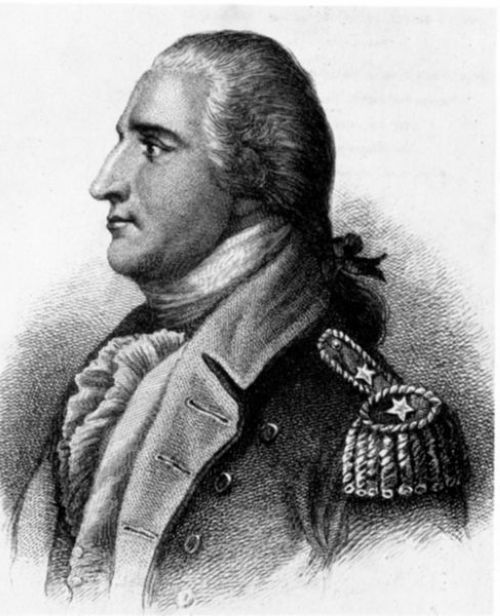The Battle of the Cedars was actually a series of relatively small skirmishes during the Canada invasion.
The Cedars were located about 30 miles away from Montreal—close enough to the shore of the St. Lawrence River to give a strategic advantage to anyone crossing the river into or out of Montreal.
The Americans had overtaken Montreal with little to no fighting after the Siege of Fort St. Jean, and Patriot General Richard Montgomery left Major General Wooster and some troops in Montreal to keep it under American control, while he took the rest of the army to the Battle of Quebec. The Canadian American relations in Montreal were hostile, primarily because the Americans prohibited trade with the Indian population, fearing the goods would make their way into British hands. However, the lack of trade hurt the American’s cause just as much.
The Americans lost the battle of Quebec, General Montgomery was killed, and Benedict Arnold had been injured but taken over command of the Canada invasion. Wooster left the command of Montreal to a colonel before he led some of his men to Quebec as reinforcements for Arnold.

Benedict Arnold
The British were plotting to attack the Continental army in Montreal from the west, and they lobbied the local Indian population for help. Loyalist Captain John Butler convinced more than 50 Indian warriors to break their neutrality agreement and join the British cause, though it is unclear whether they joined the actual fighting or not. Another recruited 100 Mohawks. Several other Loyalists began rallying support to take back Montreal, though some of the reinforcements arrived after the Americans were already gone. The colonel left in charge by Wooster, Moses Hazen, responded to this by placing a regiment commanded by Colonel Bedel in the Cedars. They built a fort there in the middle of spring.
In May, Colonel Bedel left the Cedars, leaving a Lieutenant Butterfield in charge of the fort. He brought news to Montreal that 150 British troops and about 500 Iroquois were approaching. He brought 140 men back and Brigadier General Benedict Arnold began putting together a larger relief force. The British arrived at the fort in the Cedars and sent in a demand for surrender. The Americans refused and the battle began.
The British heard the news that reinforcements were coming, and, believing that the fort had surrendered, retreated back across the river. The Battle of the Cedars resumed the next day and the British received reinforcements who were sent to fight the reinforcements. Lieutenant Butterfield, unaware of the coming reinforcements, surrendered the fort under the condition that his troops were unharmed.
The American reinforcements arrived, and, hearing that the fort was surrounded by 500 Indians, decided to delay crossing the river, requesting even more help from Montreal. On May 20, they chose to advance, and, not knowing that Butterfield had surrendered, marched straight into almost 100 Indians sent out to stop their arrival. The fight was short and the Americans surrendered and were taken as prisoners of war, and the Indians almost killed some of them as retaliation for their own losses, but the British paid the ransom for them.
General Arnold gathered the forces in Quebec and traveled back. Forster, head of the British force in Montreal, heard that Arnold’s force would be enormous. He retreated and Arnold gave chase. Arnold sent in a group of Indians who had sided with the Americans, demanding that Forster release all his prisoners, and threatening to destroy the nearby Indian villages if any of the prisoners were harmed. Forster threatened to allow the Indians to kill the prisoners as they had planned to do if Arnold attacked. Arnold wanted to send in a surprise attack early the next morning, but was voted down.
In the end, they negotiated a prisoner exchange and the American prisoners were returned to Arnold. However, Congress received news of this exchange along with exaggerated tales of the Indians’ brutality of the prisoners and refused to hold up their end of the foogain.
Arnold blamed Colonel Bedel and Lieutenant Butterfield for the Patriots’ loss at the Battle of the Cedars and sent them to court-martial. Both were convicted.


